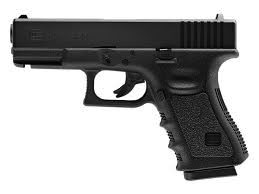Firearm Control Sparks Conversation

September 5, 2019
Firearm control is a controversial topic that’s covered both in traditional and social media.
While considered taboo, there are many reasons both for and against it from a technical and logistical standpoint, yet at the same time, there’re plenty of reasons from a moral standpoint. I will cover the reasons behind less restriction on firearms.
For starters, we should talk about what a firearm is. A firearm is a portable barreled ranged weapon designed to inflict damage on targets by launching projectiles. It “shoots” a bullet that travels fast and hard enough to penetrate objects of medium density, most notably people. However, that does not mean that they are inherently dangerous. For example, most firearm ammunition will not detonate until their pin is hammered or until they heat up to the point that their primer prematurely detonates at about 800-890°F. Unless you’re melting, your bullets won’t go off. This means that left unattended, and without human influence, your firearm will not fire.
But what about when there are people around? Take for example if you conceal carry, and someone reaches for your firearm. As with most conceal carry and police training, you should go immediately for retention, that is to keep a solid firm grasp on your firearm. As such, if someone draws your firearm, one of two things occurred. One: you did not retain your firearm securely, and they pulled the weapon from your grasp. Or two: you were physically overpowered by your opponent. Number two can be avoided using some retention techniques.
Well, how about buying a firearm? It’s easy for those who have the necessary certifications, health condition, and background check. For example, the two largest checks behind whether or not a vendor can legally sell a person a firearm is whether or not the state deems them of safe mental health and without violent offences. As such, previous offenders will not legally be able to purchase a firearm. However, those who do not seek help or are not reported and evaluated for their mental instability can still buy a firearm, because if those around them can’t tell their intent, what is a young clerk who only knows how to run a background check going to be able to see?
As such, I personally feel that the school and public shootings fault lie not with the control of firearms, but rather with the evaluation of those behind them. Many future shooters showed instability and intent to cause harm, but because nobody spoke out, we could not help them, and prevent these actions.
In short, I believe that because firearms, ammunition, and training are all three so utterly airtight, it is rather the systems that protect these people from mental illness or instability that aren’t being used properly that create the opportunity for these events to occur. As such, they receive no help, assume that violence is the answer, and further the argument that gun control is the answer.

